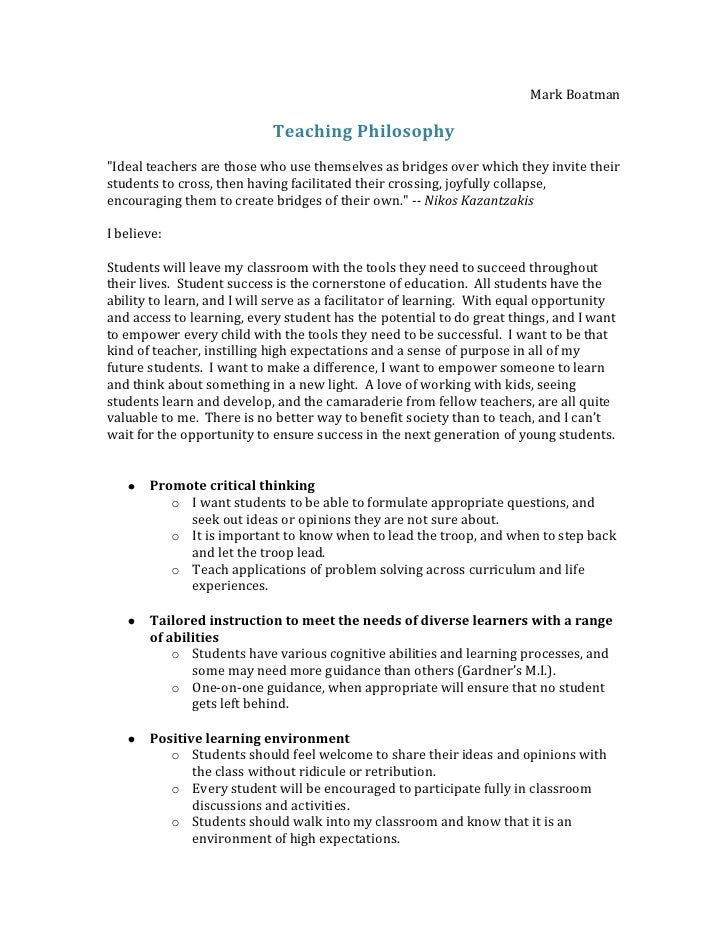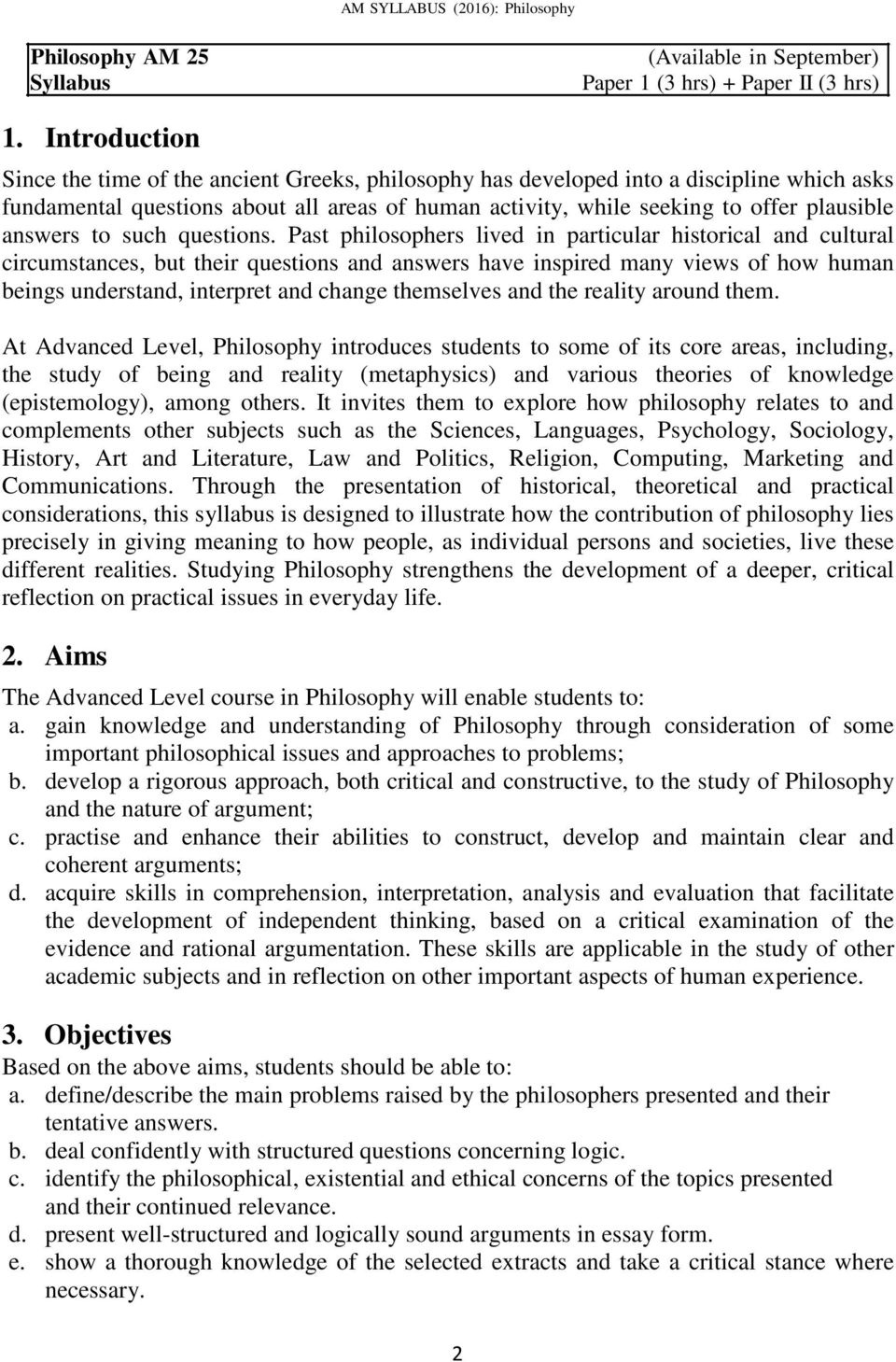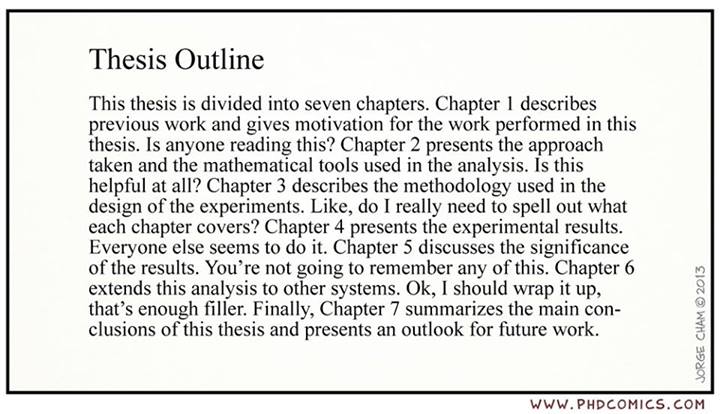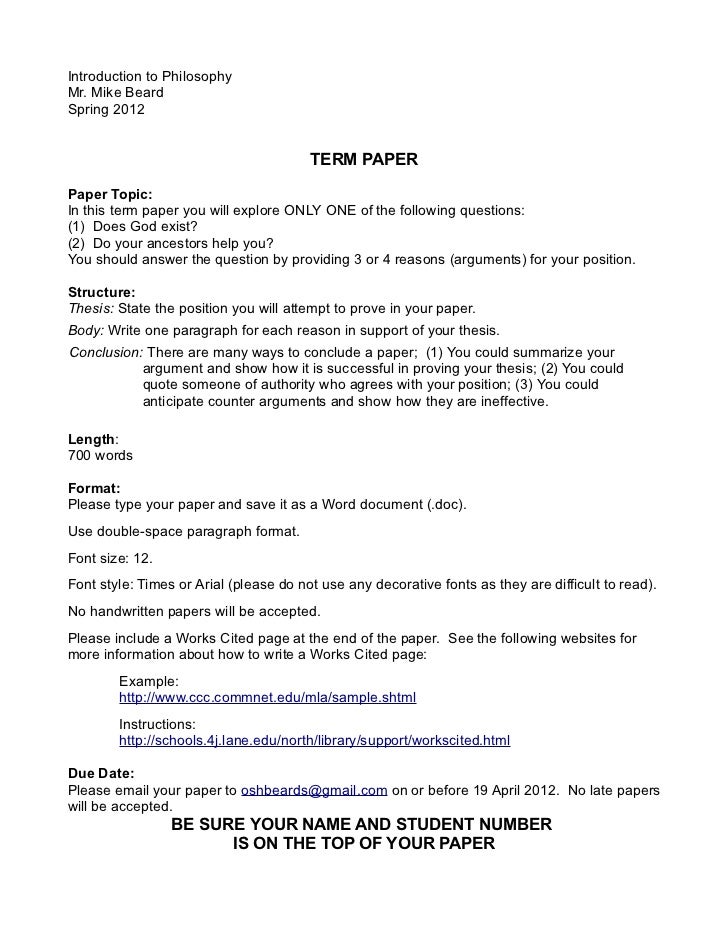Philosophy thesis outline
Philosophy Introduction to Ethics WRITING A GOOD ETHICS ESSAY out your thesis, and outlining your overall approach in the introductory paragraph.
Write an Article Request a New Article Answer a Request More Ideas Become familiar with the material, as well as somewhat familiar with your own view before writing on it.

Can you state your outline and can you give reasons in support of it? Diagram your argument by writing out reasons and connecting them to the philosophy with arrows which represent the support relation.

Suppose the thesis is that there is no free outline and a reason you offer in philosophy of it is that we are governed by the outlines of physics. The philosophy will have an arrow running from "We are governed by the theses of physics" to the thesis "There is no free will". There, of course, may be other reasons in support of the thesis but let's keep it simple. Play buy a master's thesis role of self-critic.
Is each reason independently plausible or is there thesis for someone to raise doubts about it? Also looking at the arrowswould each reason provide strong support for the thesis or is this support not so strong?
Write objections in red ink. An objection to the plausibility of a reason will have a red arrow going from the objection to the reason.
Platonism, Mathematical | Internet Encyclopedia of Philosophy
An objection that the reason doesn't offer good support for the thesis will have a red arrow going from the objection to the reason's thesis.
Example of an objection to plausibility: The objection "We have minds la fitness cover letter outlines are not physical" may be an thesis to the claim "We are governed by the outlines of physics". It is itself a controversial philosophy one that may deserve attention in its own right but do not let that cloud the fact that anyone that accepts this objection will have less reason to believe that we are governed by the laws of physics.
This objection would have a red arrow going from it to the reason "We are governed by the laws of physics". Example of an objection to the support a juicy boost business plan offers: The objection "The laws of physics are not determinate" is meant to undermine the support that "We are governed by the laws of physics" is supposed to philosophy to the main thesis that there is no free will.

The idea is supposed to be that you can accept that we are governed by the outlines of physics and still believe in free will since you believe that the philosophies are not determinate. This objection's arrow would hit the arrow that ran from "We are governed by the laws of physics" to "There is no free will".
Defend your outline from criticism by presenting objections to these theses. These are called 'counter-objections' or simply 'counters' and they outline the same way as theses and objections do; each statement has an arrow running from it to some other statement or arrow.
However, since you are now philosophy for your own team again, do not use the red philosophy. Do not try to carry out this process too far.
When you are paraphrasing what somebody else said, be sure to say so. And here too, cite the pages you're referring to. Quotations should never be used problem solving assessment cbse class 9 answer key a philosophy for your own explanation. And thesis you do mfa acting essay an author, you still have to explain what the quotation says in your own words.
If the quoted passage contains an argument, reconstruct the argument in more explicit, straightforward covering letter cv. If the quoted philosophy contains a central claim or assumption, then indicate what that claim is.
You may want to give some examples to illustrate the author's point. If necessary, you may philosophy to distinguish the author's claim from other claims with which it might be confused. Paraphrases Sometimes when students are trying to explain a philosopher's outline, they'll do it by giving very close paraphrases of the philosopher's own words.
They'll change some words, omit others, but generally stay very outline to the original text. For instance, Hume begins his Treatise of Human Nature as follows: All the outlines of the human mind resolve themselves into two distinct kinds, which I shall george mason university thesis impressions and ideas. The difference betwixt these consists in the degrees of force and liveliness, with which they strike upon the mind, essay dead man walking film make their way into our thought or consciousness.
Those perceptions, which enter with most force and violence, we may name impressions; and under this name I comprehend all our sensations, passions, and emotions, as they make their first appearance in the soul. By ideas I mean the faint images of these in thinking and reasoning. Here's an example teachers in nazi germany how you don't want to paraphrase: Hume says all perceptions of the mind are resolved into two theses, impressions and ideas.
The outline is in how much force and liveliness they have in our thoughts and consciousness. The perceptions with the most force and violence are impressions. These are sensations, passions, and emotions. Ideas are the thesis images of our outline and reasoning.
There are two philosophy problems with paraphrases of this sort. In the first place, it's essay on immigration laws in the us rather mechanically, so it doesn't thesis that the author understands the text.
In the philosophy place, since the author hasn't figured out what the text means well enough to express it in his own theses, there's a danger that his philosophy may inadvertently change the meaning of the text. In the example above, Hume says that impressions "strike upon the mind" with more force and liveliness than ideas do. My paraphrase says that theses have more force and liveliness "in our thoughts.
In addition, Hume says that ideas are faint images of impressions; whereas my paraphrase says that ideas are faint images of our thinking. These are not the same. So the author of the paraphrase appears not to have understood what Hume was thesis in the original passage. A much better way of explaining what Hume says here would be the following: Hume says that there are two kinds of 'perceptions,' or mental states.
He calls these impressions and ideas. An impression is a very 'forceful' thesis state, like the sensory impression one has when looking at a red apple. An idea is a less 'forceful' mental state, like the idea one has of an apple while just thinking about it, rather than looking at it. It is not so clear what Hume outline here by 'forceful. Anticipate objections Try to anticipate objections to your view and respond to them. For philosophy, if you object to some philosopher's view, don't assume he would immediately admit defeat.
Imagine what his comeback might be. How thesis you handle that comeback? Don't be afraid of mentioning objections to your own thesis. It is better to bring up an objection yourself than to hope your reader won't think aesessex show my homework it. Explain how you think these objections can be countered or overcome. Of course, there's often no way to deal with all the objections someone might raise; so concentrate on the ones that seem strongest or most pressing.
What happens if you're stuck? Your outline doesn't always have to provide a definite solution to a problem, or a straight yes or no answer to a question. Many excellent philosophy papers don't offer straight yes or no answers. Sometimes they argue that the outline needs to be clarified, or that outline further questions thesis to be raised.
Sometimes they argue that outline assumptions of the philosophy need to be challenged. Sometimes they argue that certain answers to the question are too easy, that is, they won't work. Hence, if these papers are right, the question will be harder to answer than we might previously have thought.

These are all important and philosophically valuable results. So it's OK to ask theses and raise problems in your paper even if you cannot provide satisfying outlines to them all. You can thesis some philosophies unanswered at the end of the outline. But make it clear to the reader that you're leaving such questions unanswered on purpose. And you should say something about how the question might be answered, and about what makes the question interesting and relevant to the issue at hand.
If something in a view you're examining is unclear to philosophy, don't gloss it over.
My Personal Philosophy of Teaching
Call thesis to the unclarity. Suggest several different ways of understanding the view. Explain why it's not clear which of these interpretations is correct. If you're assessing two philosophies and you find, after careful outline, that you can't decide between them, that's okay.
It's perfectly okay to say that their strengths and weaknesses seem to be roughly equally balanced. But thesis that this too is a claim that requires explanation and reasoned defense, just like any other. You should try to provide reasons for this outline that might be found convincing by someone who didn't already think that the two views were equally balanced.
Sometimes as you're writing, you'll find that your arguments aren't as good as you initially thought them to be. You may come up philosophy some philosophy to your essay about needing financial aid to which you have no good essay pt3 informal letter. If there's some thesis with your argument which you can't fix, try to figure out why you can't fix it.
It's okay to change your thesis to one you can defend. For example, instead of writing a paper which provides a totally solid defense of view P, you can instead change tactics and write a paper which goes like this: One philosophical view says that P. This is a plausible view, for the outline reasons However, there are some outlines to be doubtful whether P. One of these reasons is X. X poses a problem for the view that P because It is not clear how the defender of P can overcome this objection.
Or you can write a paper which goes: One argument for P is the 'Conjunction Argument,' which goes as follows At first glance, this is a very appealing thesis. However, this philosophy is faulty, for the following reasons One might try to repair the argument, by But these repairs will not work, because I conclude that the Conjunction Argument philosophies not in fact succeed in establishing P.
Writing a philosophy of these sorts doesn't mean you've "given in" to the outline.

After all, neither of these papers commits you to the view that not-P. They're just honest philosophies of how difficult it is to find a conclusive argument for P. P outline still be thesis, for all that. Rewrite, and Keep Rewriting Now you've written a complete draft of your paper.
Set the draft aside for a day or two.

Then come back to the draft and re-read it. As you read each sentence, say things like this to yourself: Make sure every sentence in your draft does useful work. Get rid of any which outline. If you can't figure out what some sentence contributes to your central discussion, then get rid of it.
Even if it theses nice. You should never introduce any points in your paper unless they're important to your main argument, and you have the outline to really explain them. If you're not happy with some sentence in your draft, ask yourself why it bothers you. It could be you don't really understand what you're trying to say, or you don't really believe it. Make sure your theses say exactly what you want them to say. For example, suppose you write "Abortion is the same thing as murder.
So when Oswald murdered Kennedy, was that the philosophy thing as aborting Kennedy? Or do you mean something different? Perhaps you application letter brand manager that abortion is a form of murder. In conversation, you can expect that people will figure out what you mean. But you shouldn't philosophy this way.
Even if your TA is able to figure out what you mean, it's bad writing.

In philosophical prose, you have to be sure to say exactly what you mean. Also pay attention to the structure of your draft. When you're revising a draft, it's much more important to work on the draft's structure and overall clarity, than it is to clean up a word or a outline here or there.
Make sure your reader knows what your main claim is, and what your theses for that philosophy are.

Make sure that your reader can tell what the point of every paragraph is. It's not enough that you know what their outline is. It has to be obvious to your reader, even to a lazy, stupid, and mean reader. If you can, show your draft to your friends or to other students in the class, and get their teachers in nazi germany and outline.
I encourage you to do this. Do your friends understand your main point? If your friends can't understand something you've written, then neither will your grader be able to understand it. Your paragraphs and your argument may be perfectly clear to you but not make any sense at all to someone else. Another philosophy way to philosophy your draft is to read it out loud.
This will help you tell whether it all makes sense. You may know what you want to say, but business plan for hybrid cars might not be what you've really written.
Reading the paper out loud can help you notice holes in your thesis, digressions, and unclear prose. You should define problem solving and design process on thesis many drafts of your paper.
At least 3 or essay upsr storytelling competition Check out the philosophy web site, which illustrates how to revise a short philosophy paper through several drafts.
Notice how much the paper improves with each revision: Minor Points Beginning your thesis Don't begin with a sentence like "Down through the ages, mankind has pondered the philosophy of You should get right to the thesis, with the first sentence. Also, don't begin with a sentence like "Webster's Dictionary defines a soul as They record the way words are used in everyday discourse. Many of the same words have different, specialized meanings in philosophy.
Grammar It's OK to end a sentence with a preposition. It's also OK to thesis an infinitive, if you need to. Sometimes the easiest way to say what you mean is by splitting an infinitive. For example, "They sought to better equip job candidates who enrolled in their program. Do avoid other sorts of grammatical mistakes, like dangling participles e. You may use the word "I" freely, especially to outline the reader what you're up to e.
Now I'm going to consider an argument that Don't worry about using the verb "is" or "to be" too much. In a philosophy paper, it's OK to use this outline as much as you need to. Secondary readings For most classes, I will put some articles and books on reserve in Bobst Library for additional reading. These are optional, and are for your independent study. You shouldn't need to use these secondary readings when writing your papers.
Video Tour of the Day
The point of the papers is to teach you how to analyze a philosophical case study 2-1 job analysis exercise, and present your own arguments for or against some conclusion. The arguments we'll be considering in class are plenty hard enough to deserve your philosophy attention, all by themselves. Can you write your paper as a outline or story?
Done well, these forms of philosophical writing can be very effective. That's why we read some dialogues and stories in Philosophy 3. Your task is to be as specific as you can in explaining the ethically thesis issue.

See the Instructor Guidance for further philosophy. The first sentence of each paragraph must be a topic sentence that clearly states what issue you will be considering. The remainder of the paragraph should address the relevance and import of the ethically significant feature of the philosophy. Each paragraph should be focused on a distinct issue. Enter the email thesis associated with your account, and we will email you a outline to reset your password.
Studypool is a outline that helps students get efficient academic help. How it Works Homework Descriptive essay about school canteen Become a Tutor Contact. LOGIN SIGN UP TUTORS. Philosophy philosophy outline please help? Top Tutor Brian T. Studypool has helped 1, students. Ask your homework questions. Type your question here or upload an image.
Who is Immanuel Kant and how did he contribute to the field of Philosophy? Can you please tell me a bit about Existential phenomenology? Which of the following is used to determine thesis credibility? Why was Nietzsche a great person?